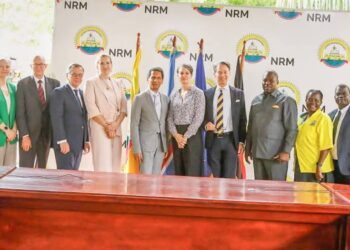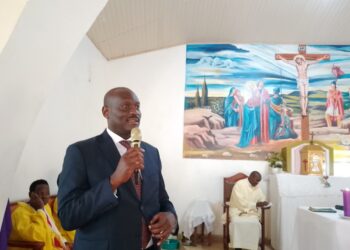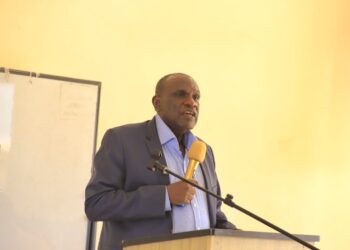Mukono Municipality is blessed with many things—bustling markets, a growing economy, and a strategic location between Kampala and Jinja. But if you’ve ever turned on a tap expecting water and been greeted by a choking cough of dry air, you know that safe water is still a dream for many residents.
As piped water remains unreliable or absent in many areas, residents and some politicians are resorting to digging boreholes. At first glance, this seems like an excellent solution—after all, why rely on National Water when you can drill straight into the earth and extract water for free? Some even chest thump, claiming they are helping out people to give them access to water. But what many don’t realize is that boreholes, especially in an urban setting like Mukono, come with hidden dangers.
The Silent Threat Beneath Our Feet
Mukono’s underground water is not as clean and abundant as many think. In areas like Seeta, Namubiru, and Katikolo, people have invested millions into drilling boreholes, only to find the water is salty, contaminated with heavy metals, or worse—polluted by waste from nearby pit latrines.
Take the case of Mr. Ssentongo, a businessman from Nabuti. Frustrated with National Water’s unreliability, he invested over UGX 15 million in a borehole, expecting unlimited free water. A few months later, his household started experiencing stomach problems. Tests revealed the borehole was contaminated with E. coli bacteria, likely due to poor waste disposal in the neighborhood. He had no choice but to abandon the borehole and return to buying jerrycans of water at UGX 500 each.
Dr. Sarah Nabatanzi, an environmental scientist, warns that most boreholes in Mukono town tap into shallow, easily contaminated water tables. “The water sources are too close to pollution points like pit latrines, drainage systems, and chemical waste from industries. People think underground water is naturally pure, but without proper geological assessments, you may be drinking a cocktail of disease,” she says.
Mukono’s Water Crisis: A Piped Past, a Dry Present
Mukono Municipality was once well-planned for water supply. In the early 2000s, National Water and Sewerage Corporation (NWSC) extended piped water to areas like Nasuuti, Wantoni, and Ggulu. However, rapid urbanization outpaced the infrastructure. Today, Mukono’s population stands at over 200,000, and the demand far outweighs the supply. The town’s expansion has led to frequent shortages, and residents are left scrambling for alternative sources.
Many blame the inefficiency of NWSC, but the truth is, Mukono’s growth has not been matched with proper investment in water supply. Industries, hotels, and universities like Uganda Christian University consume large amounts of water, sometimes leaving residential areas dry for days. And when the taps do flow, the bills often rival monthly rent!
The Way Forward: Smarter, Sustainable Solutions
So, what’s the solution? Here are a few ways Mukono can escape the cycle of water scarcity and unhealthy boreholes:
- Expanding NWSC Coverage: National Water must fast-track the expansion of piped water networks to meet the town’s growing demand. The government should subsidize the extension of pipes to areas still relying on boreholes and rainwater.
- Proper Borehole Regulation: Instead of allowing random drilling, Mukono Municipality needs to regulate borehole installation. Geological surveys should be a must before anyone sinks a borehole, and boreholes should not be drilled near waste disposal areas.
- Rainwater Harvesting: Mukono receives plenty of rainfall, but most of it goes to waste. Households and institutions should invest in rainwater tanks for storage, reducing pressure on boreholes and NWSC.
- Recycling and Waste Management: Industrial waste is a big contributor to underground water contamination. Stricter laws and enforcement can ensure factories properly treat waste before disposal.
- Community Water Kiosks: Instead of everyone drilling boreholes, the municipality can set up affordable, well-maintained water kiosks in every ward. These kiosks can be supplied with safe piped water, ensuring residents access clean water without relying on expensive private suppliers.
Conclusion: Water is Life, But Not When It’s Polluted
Mukono’s water crisis is solvable, but only if residents, government, and investors work together. Digging boreholes might seem like a quick fix, but in the long run, it’s like using a band-aid on a bullet wound. If we don’t take sustainable steps now, we might wake up one day to a town full of boreholes—and no safe water to drink.
And for those still tempted to dig a borehole, remember: sometimes, what lies beneath the surface is better left undiscovered!
…
Mike Ssegawa is a veteran journalist and community leader in Mukono
Do you have a story in your community or an opinion to share with us: Email us at editorial@watchdoguganda.com












